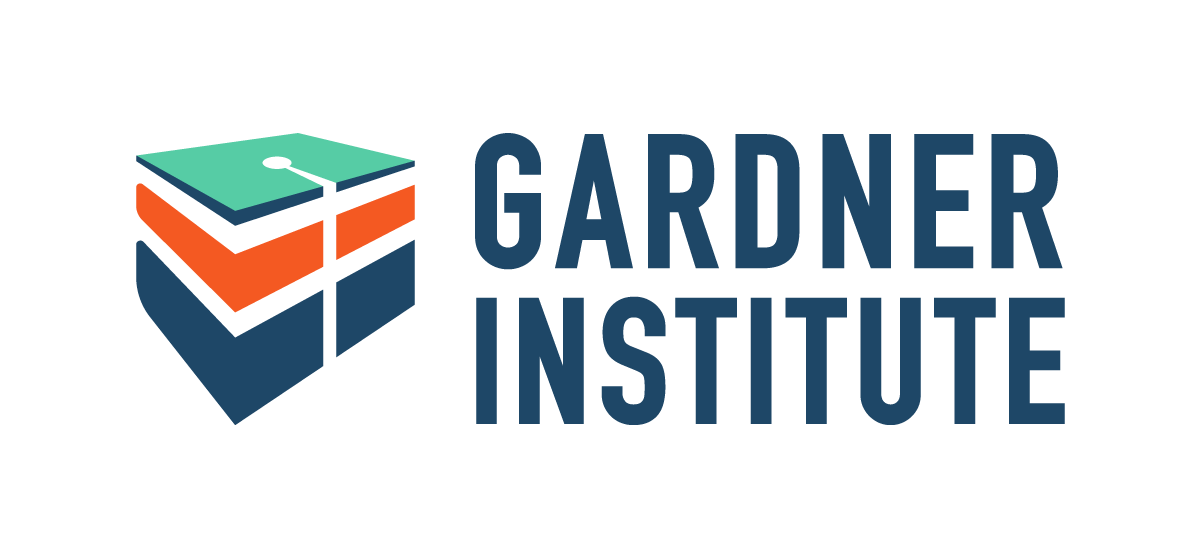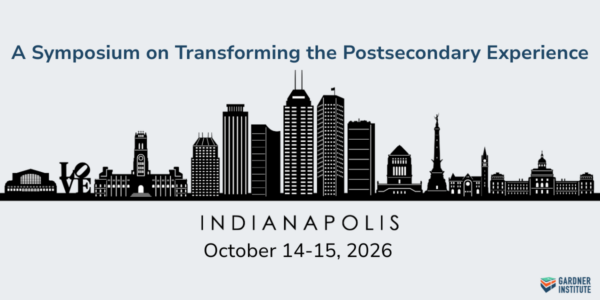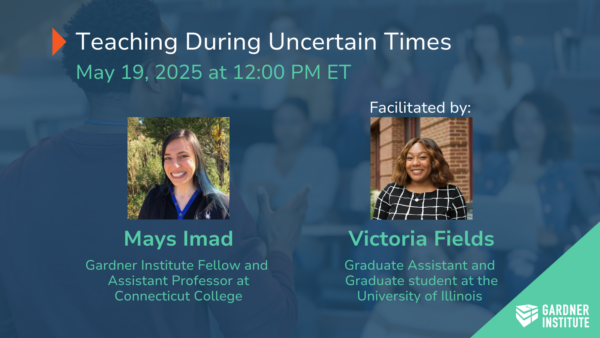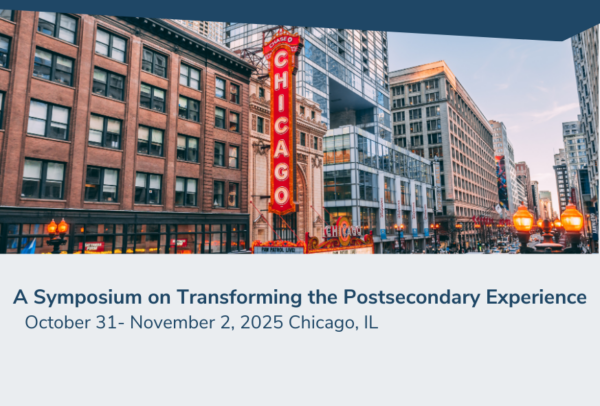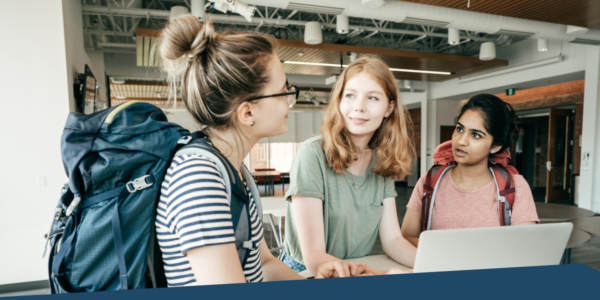Symposium on Transforming the Postsecondary Experience
Innovation And Design So Every Student Can Graduate
October 31- November 2, 2025
Sheraton Grand Chicago Riverwalk Chicago, IL
Gain New Knowledge to Apply to your Work!
Participants will learn about approaches for transforming various aspects of the undergraduate experience and apply that learning to efforts that help their institutions make sure more students thrive.
The event begins on October 31 with the opening plenary at 5 p.m. and ends by 2:30 p.m. on November 2nd.
Pre-Conference workshops will be held on October 31 from 9 am to 4 pm.
The Transfer Experience
Drawing on nearly twenty years of experience helping institutions and systems redesign the transfer experience, this workshop will deepen participants’ understanding of ways to create and sustain positive transfer-sending and transfer-receiving cultures that support student persistence and degree completion. The participants will learn about and create an initial plan for applying the Gardner Institute’s signature approach for creating transfer-receptive cultures and redesigning the transfer experience.
Facilitators:
Jill Robinson Kramer, Vice President
Cindy Kane, Associate Vice President
Kristen Seas Trader, Director of Program Design
Gateway Course Experience®
This interactive workshop introduces a comprehensive, evidence-based model for transforming gateway courses to promote student success. Gateway courses, once termed barrier or weed-out courses, are, by definition, often foundational (lower-division or developmental courses that serve as a pathway to credit-bearing courses); high risk (courses that yield higher rates of D, F, W, or Incomplete grades); and may have high enrollments within, as well as across, sections (as defined by the institution) (Koch, 2017). During the workshop, participants will learn how to apply the Gardner Institute’s gateway course redesign model as well as implement strategies to help them advance gateway course transformation at their institution.
Facilitators:
Drew Koch, Chief Executive Officer
Stephanie M. Foote, Vice President for Teaching, Learning, and Evidence-Based Practices
Josh Caulkins, Fellow, Gardner Institute
Scott Evenbeck, Board member, Gardner Institute
Strengthening the First-Year Experience to Support Student Achievement
Drawing on the Gardner Institute’s deep experience with redesigning the first college year, this session will help participants take initial steps toward building and implementing a comprehensive plan to redesign the entirety of the first college year at their institution. Specifically, the facilitators will teach participants about the Gardner Institute’s first-year redesign approach used with over 300 colleges and universities across the United States to date – Foundations of Excellence. Session attendees will learn about the method, successful approaches, pitfalls, and lessons learned about creating and implementing a comprehensive first-year redesign plan, and come away with an initial outline for how they will advance first-year redesign at their own institutions after the workshop.
Facilitators:
John N. Gardner, Executive Chair and Founder
Betsy O. Barefoot, Senior Scholar and Co-Founder
Felita Williams, Senior Vice President for Programs
The Second Year of College
The second year of college is a critical yet often overlooked stage in the student success and completion journey. While many assume students are fully settled after the first year, national research reveals that a significant number leave higher education after year two. Grounded in the Gardner Institute’s evidence-based redesign model, the session will guide participants in evaluating and rethinking institutional practices that impact second-year success. Attendees will leave with tangible first steps for transforming the second-year experience and a clearer vision for increasing student persistence beyond the first year.
Facilitators:
Akilah Martin, Assistant Vice President
Brent Drake,Senior Vice President for Operations and Research
Ligia Perez, Assistant Vice President
Ed Willis, Senior Resident Fellow
Purpose-Driven Academic Advising
This workshop guides participants in creating an initial plan for purpose-driven advising – an approach to redesigning academic advising to help students connect personal values, academic goals, and professional aspirations to their educational paths. Grounded in the Gardner Institute’s evidence-based redesign model and informed by research on relationship-rich education and student persistence, the session explores exemplary advising practices from two- and four-year institutions. Participants will leave with a practical roadmap to redesign advising at their institutions and build momentum for implementation.
Facilitators:
Vicki McGillin, Associate Vice President
Sara Stein Koch, Institute Fellow and Senior Associate for Institutional Support
Jess Ramsey, Assistant Vice President
Reducing Structural Complexity in the Curriculum
Curriculum design is one of the most powerful levers for institutional transformation. Research shows that structural complexity in curricula—hidden prerequisite chains, confusing program pathways, and excess credit requirements—is directly correlated with student attrition, even among the best-prepared students. Drawing on the Gardner Institute’s experience building and scaling a national community of practice to address structural complexity, this workshop introduces curricular complexity mapping and improvement science techniques. Participants will analyze academic systems, review policies, and begin developing an action plan to improve program outcomes. Faculty-staff teams are encouraged, and programs of study may be submitted in advance for custom maps and expert support.
Facilitators:
Brandon Smith, Associate Vice President
Ethan Campbell, Associate Director of Technology, Informatics, and Data Security
Matt Pistilli, Fellow
AI and Student Success: A Strategic Pause for Alignment
As institutions experiment with AI, the key question is whether these efforts are meaningfully advancing student success for all learners. Grounded in the Gardner Institute’s evidence-based redesign model, this interactive session guides institutional teams of faculty and staff through a structured decision-making framework to evaluate their AI initiatives. Participants will explore how AI can enhance learning, advising, and student services, and will discover new strategies to align AI efforts with institutional goals for equity, persistence, and completion.
Throughout the session, participants will reflect on current AI strategies, examine real-world use cases in higher education, and discuss methods for assessing and refining their initiatives. Using the Gardner Institute’s model as a foundation, they will engage in a collaborative process to ensure that AI integration supports core student success principles. Prior to the session, participants will respond to a brief set of preparatory questions from the facilitators to guide their engagement and planning.
Facilitators:
Rob Rodier, Associate Vice President for Technology, Informatics, and Data Security
Tracie Yorke, Resident Fellow
Pre- Conference Workshops
October 31 from 8:00 am – 4:00 pm.
Teaching and Learning Community 8:00 am- 3:30 pm (Full-day with lunch included)
Developing Citizenry – Course Design for Civic Responsibility and Engagement
bell hooks reminds us that classrooms are places of ‘hope’ and ‘possibility’ if only we as educators are willing to lean into what is possible. In this workshop, we will re-envision the classroom not as simply a place for knowledge dispensation and accumulation, but as a space where we enact and challenge the behaviors, attitudes, and mindsets necessary to be active participants in a democracy whose credibility requires full responsibility and engagement. We will center activities that both address the subject matter needs of courses and make explicit the values that enable civic engagement.
Learning objectives
- Identify the connection between civic engagement and the academic process
- Bridge civic engagement with civic responsibility
- Connect democratic behaviors to active learning in course design
- Explore design strategies that navigate emotional discomfort
- Implement assessments that quantify the impacts of civic engagement design approaches
Facilitators:
Stephanie M. Foote, Vice President for Teaching, Learning, and Evidence-Based Practices
Victoria Fields, Graduate Assistant
Josh Caulkins, Fellow, Gardner Institute
Bryan Dewsbury, Fellow, Gardner Institute
Mays Imad, Fellow, Gardner Institute
Brad Wuetherick, Fellow, Gardner Institute
Transformation Institutions Community of Practice 9:00 am-12:00 pm (Half-day)
Participants will be invited to engage in pre-reading, investigation of methodology, and work collaboratively to enhance their Transformation plans. This opportunity is designed to prime new and existing schools to treat any transformation work as an opportunity to improve systems and conduct rapid tests of their respective theories of change. Institutions will also share lessons learned and have time to engage in generative innovation focusing on their most immediate needs related to advancing transformation plans.
This session is for Transforming the Foundational Postsecondary Experience™ Institutions Only:
- Bellarmine University
- Bridgewater State University
- California State University- San Bernardino
- Capital University
- Columbia College of Chicago
- CUNY Queensborough Community College
- Emmanuel College
- Frank Phillips College
- Kentucky State University
- Lindsey Wilson College
- Louisiana State University- Shreveport
- Mary Baldwin University
- Mississippi State University
- Normandale Community College
- Purdue University Global
- Simmons College of Kentucky
- Thomas More University
- University of Alaska Fairbanks
- University of New Orleans
Facilitators:
Brent Drake, Senior Vice President for Operations and Research
Drew Koch, Chief Executive Officer
Brandon Smith, Associate Vice President
Dual Credit Strategies: Outreach, Collaboration, & Impact 9:00 am - 12:00 pm (Half-day)
Building a thriving Dual Credit program requires more than offering college courses—it demands strong, intentional partnerships between colleges and high school communities. This interactive workshop will guide participants through proven practices for cultivating collaborative relationships with high school counselors, engaging families, and leveraging data to expand early awareness- beginning in middle school – and increase outreach and participation in Dual Credit programs.
Key areas of focus for our presentation:
Strategic Counselor Collaboration
- Learn how College Advisors can effectively integrate into the high school support ecosystem by attending counselor meetings and becoming a trusted resource.
- Discover best practices for informing high school counselors about Dual Credit offerings and benefits so they can confidently advocate for the program.
- Explore strategies for helping high school and college counselors amplify their outreach to students—including middle schoolers—ensuring early awareness of college opportunities.
Engaging and Empowering Parents
- Discuss the pivotal role parents play in students’ participation and success in Dual Credit programs.
- Unpack strategies to engage families.
- Learn how to convey the academic and financial benefits of Dual Credit in ways that resonate with parents and guardians.
Leveraging Data to Drive Outreach
- Examine how Dual Credit providers can use high school demographic, performance, and enrollment data to tailor marketing and student engagement efforts.
- Understand how insights from data can help uncover gaps, identify growth opportunities, and align with the unique needs of each school partner.
Supporting Faculty for Success
- Gain an overview of essential support structures for faculty teaching Dual Credit, including training, resource alignment, and collaboration with high school educators.
Whether you are a college advisor, Dual Credit administrator, or institutional leader, this session will equip you with the strategies, tools, and insights needed to foster stronger partnerships, elevate outreach, and drive meaningful student outcomes.
Facilitators:
Akilah Martin, Assistant Vice President
Priscilla A. Sanchez, Executive Director, School & College Partnerships, Lee College
Hidden Populations: Foster / Adopted Youth & Students with Trauma- 1:00 - 4:00 pm (Half-day)
Hidden college student populations refer to students who tend to be hidden from campus institutional systems, processes, and decision-making. These students may be motivated to remain anonymous due to life experiences about which there tends to be social judgement and because they see college as an opportunity to move beyond those experiences; for example, students who were in foster care, have survived sexual assault, were formerly incarcerated, and with similar types of socially stigmatizing experiences. Student desires for anonymity and lack of formal training for higher education professionals may limit the ability of campuses to support these students. This workshop will identify and discuss who is currently considered a hidden population, why and how their life experiences may intervene in their college journeys, and what campuses can do to assess their readiness or their current efforts to provide support.
Facilitators:
Kerri Kearney, Fellow, Gardner Institute
Lisa Will, Fellow, Gardner Institute
Leading Student Success in Academic Units -1:00 - 4:00 pm (Half-day)
This half-day workshop introduces leaders of academic units to a three-part framework for leading student success initiatives that result in sustainable efforts to improve student outcomes. Along with interactive presentations from experts in academic leadership, participants will be working with colleagues in similar roles at other institutions to identify critical next steps for leading a student success initiative appropriate to their academic units, student populations, and institutional contexts.
By the end of the workshop, attendees will be able to:
- Describe a general framework for leading student success initiatives as an academic leader
- Identify initial actions leaders can take for developing awareness, alignment, and/or assistance for a student success initiative
- Draw on wisdom from peers in similar positions about strategies that do and do not seem to work when launching and leading initiatives
We encourage participation by those who currently provide leadership to academic colleges, departments, schools, or other units — including deans, department chairs, associate/assistant deans, associate/assistant department chairs, and school or program directors. Academic leaders who have been selected for but have not begun their terms of service in these or similar roles are also welcome.
Facilitators:
Paul LePore, Fellow, Gardner Institute
Scott Newman, Fellow, Gardner Institute
Suzanne Wilson Summers, Fellow, Gardner Institute
Conference Registration Fees –
Register before August 15 for the early bird rate: $795
Regular Registration: $855
Student Registration (graduate and undergraduate): $425
Half-Day Pre-conference Workshops: $200
Full-Day Pre-conference Workshops: $375 (includes breakfast, lunch, all-day beverages, and afternoon snack)
- Participants whose main designation is Student are eligible for a student discount. Email events@gardnerinstitute.org for the code.
- Registrants from Transformation schools receive a 20% discount on the posted fees
- Registrants from non-Transformation schools who register for both The Graduate Student Experience and the Symposium receive a 10% discount on the combined fees. Contact events@gardnerinstitute.org for code.
- Registration Fee includes: Opening reception, two breakfasts, two lunches, refreshment breaks, and conference materials.
Hotel: Sheraton Grand Chicago Riverwalk, 301 E North Water St, Chicago, IL 60611
$205 per night. Reserve here
Contact Angie Whiteside at whiteside@gardnerinstitute.org to make reservation,
Refund Policy: There will be no refunds given after August 15, 2025. All refunds will be subject to a 5% processing fee. Registration can be transferred to another participant before October 10th, no transfers will be allowed after that. Participants can switch tracks before August 15th pending availability, requests must be made in writing to events@gardnerinstitute.org.
- For more information contact events@gardnerinstitute.org

Conference Location Information:
Sheraton Grand Chicago Riverwalk, 301 E North Water St, Chicago, IL 60611
Chicago is home to cultural attractions, two scenic waterfronts, and the iconic deep-dish pizza. Chicago has been Voted the Best Big City in the country for a historic eighth year in a row. Enjoy an accessible and diverse city with theater, live music, and more.
Hotel Information:
Sheraton Grand Chicago Riverwalk, 301 E North Water St, Chicago, IL 60611
$205 per night
Available through October 25th
